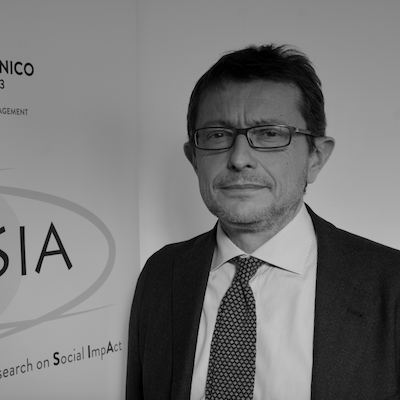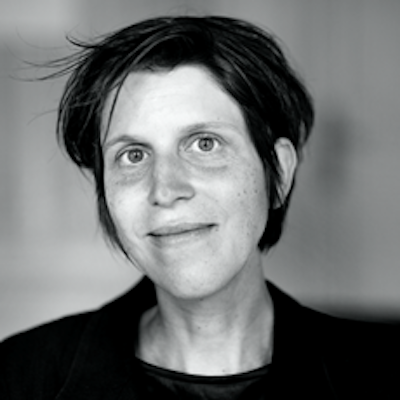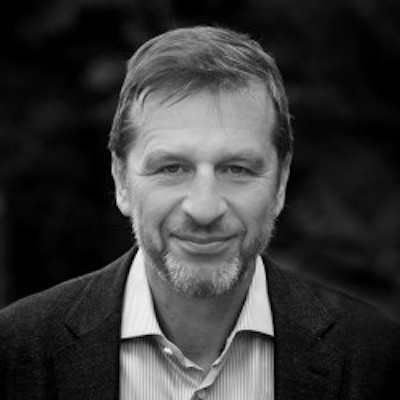Social Economy Scientific Conference
#SES2020
24th & 25th November 2020
#1 Session
Tuesday 24th November 2020 | 2:30pm – 4:30pm
Social Economy as an agent of change and its spillover effect –
Evolutionary trends to envision the future
In the first session of the #SES2020 Ulla Engelmann (Head of Unit, EU Commission – DG GROW), introduced the event by expressing the EU’s interest in a multi-stakeholder discussion in order to collect valuable input for the Social Economy Action Plan (2021) and to give social economy an important role in the recovery of the EU. In the first presentation, Julie Battilana (Harvard Business School) reminded us that we are currently at crossroads: we can either continue with a shareholder-value perspective that keeps damaging our environment and widens inequalities – or we can change the rules of the game and provide the legal framework to let social businesses thrive and become the new normal. Marthe Nyssens (UCLouvain) & Rocío Nogales-Muriel (EMES International Research Network) stressed the importance of the connection between social economy/entrepreneurship and academic research to provide visibility and is a source of knowledge for actors in the sector. Rafael Chaves-Avila (Universität de Valencia) showed that social economy has proved a profound resilience to the current crises and demonstrated viable aftermath scenarios for the post-pandemic time. Mario Calderini (Tiresa at Politecnico di Milano) expressed four reasons on why technology is crucial for social economy actors to thrive and scale their solutions in the future, as well as what needs to be done in terms of policy. Ruth Brännvall (CEO and Founder at Impact Invest – SIIN AB) reported about her research on how innovation practices look in African countries, such as Ghana and Uganda, and how ventures can grow from partnerships. In the subsequent discussion, the session chair Marie J. Bouchard (Université du Québec à Montréal) lead the speakers through topics such as the redistribution of power to help the those who need it most, about necessary partnerships to ensure spillover effects from the social economy and gave an outlook on how to use technology in favor of the social economy’s development.
| Time | Content |
|---|---|
| 2:30pm | Welcoming remarks by Ulla Engelmann (Head of Unit, European Commission DG GROW) |
| 2:40pm | Introduction Session Chair: Marie J. Bouchard (Université du Québec à Montréal & CIRIEC) |
| 2:45pm | Julie Battilana (Harvard Business School & Harvard Kennedy School) |
| 3:00pm | Marthe Nyssens & Rocío Nogales-Muriel (UCLouvain & EMES International Research Network) |
| 3:15pm | Rafael Chavez Avila (Universitat de Valencia & CIRIEC) |
| 3:30pm | Mario Calderini (School of Management, Politecnico di Milano) |
| 3:45pm | Ruth Brännvall (Impact Invest – SIIN AB) |
| 4:00pm | Session Chair: Summary & Outlook |
| 4:05pm | Final Discussion |

Ulla Engelmann
Head of Unit, Social Economy, Directorate General Internal Market, Industry, Entrepreneurship and SMEs, European Commission (DG GROW)
Welcoming Remarks

Marie J. Bouchard
Professor at the Université du Québec à Montréal
President of the Scientific Commission on Social and Cooperative Economy of CIRIEC International
Marie J. Bouchard Marie J. Bouchard is full professor at Université du Québec à Montréal (Canada) and member of the Center for Research on Social Innovations (CRISES). She was nominated in 2015 President of the Scientific Commission on Social and Cooperative Economy of CIRIEC International. She presently acts as external coordinator of the project Opportunities and challenges of statistics on SSE, led by UNRISD for the United Nations Inter-Agency Task Force on Social and Solidarity Economy (UNTFSSE), after having chaired for the International Labour Organization the COPAC technical working group on cooperative statistics. She authored with colleagues many works, among which: Conceptual Framework for the Purpose of Measurement of Cooperatives and its Operationalization, published by International Labour Organization; The Worth of the Social Economy and The Weight of the Social Economy, an International Perspective, published with Peter Lang (Brussels); and Innovation in the Social Economy, the Québec Experience, with University of Toronto Press.
Session Chair

Julie Battilana
Joseph C. Wilson Professor of Business Administration in the Organizational Behavior unit at Harvard Business School, Alan L. Gleitsman Professor of Social Innovation at Harvard Kennedy School
Julie Battilana is the Joseph C. Wilson Professor of Business Administration in the Organizational Behavior unit at Harvard Business School and the Alan L. Gleitsman Professor of Social Innovation at Harvard Kennedy School, where she is also the founder and faculty chair of the Social Innovation and Change Initiative. Her research examines the processes by which organizations and individuals initiate and implement changes that diverge from the taken-for-granted norms in a field of activity. The aim of her work is to elucidate what it takes to initiate divergent change, and how to succeed in its implementation. An important focus of her research is on social enterprises and how aspects of corporations and not-for-profits at their core can be sustainably combined.
Topic: ,,Beyond a Niche Approach: Could the Social Economy Become the Norm?„

Marthe Nyssens
Professor of Social Economy at UCLouvain and
President of the EMES Research Network
Marthe Nyssens is a full professor at the School of Economics of the Catholic University of Louvain (UCLouvain, Belgium). She acts as the scientific coordinator, together with Jacques Defourny, of the “International Comparative Social Enterprise Models (ICSEM) Project”, which involves some 230 researchers from 55 countries in all world regions. She was a founding member and is currently the president of the EMES International Research Network. Her research work focuses on conceptual approaches to the third sector, both in developed and developing countries, as well as on the links between third-sector organisations and public policies. Her research deals with socio-economic logics of “not-for-profit organisations”; she analyses the role of these organisations and their relations with public policies, the market and civil society in fields such as work integration, care or the commons. She is member of GECES – Expert Group on Social Economy and Social Enterprises of the European Commission.
Topic: ,,The future of the social economy: The role of knowledge and networks in the development and support of the social economy„

Rocio Nogales-Muriel
Director of the EMES Research Network
Rocío Nogales-Muriel is the Managing Director of the EMES International Research Network since 2004. She coordinates the preparation and implementation of international research projects and conferences, PhD training schools and international partnerships as well as the network membership and communication. She was a member of the Experts Group on Social Enterprise of the European Commission (GECES) from 2013 to 2017 and currently represents EMES at the UNTFSSE. She obtained her PhD at the University of Barcelona on social innovation and the scaling-up strategies operating in cultural and artistic social enterprises. As a researcher, she focuses on social innovation, organizational transformation and the management strategies operating in third sector organizations, specifically in the cultural sector. She co-edits the book series “Routledge Studies in Social Enterprise & Social Innovation”.
Topic: ,,The future of the social economy: The role of knowledge and networks in the development and support of the social economy„

Rafael Chaves
Professor of Economic Policy and Social Economy at Universitat de Valencia,
Representation of CIRIEC-international at GECES
Rafael Chaves is Professor of Economic Policy and Social Economy at the Universitat de Valencia. He obtained a European Doctorate Laureate in Economics in 1995 and was Director of the Research Institute IUDESCOOP for ten years until he took on the position of Director of the Official Doctorate Program on Social Economics at the same university. He is President of the Scientific Commission on Social and Cooperative Economics of CIRIEC-international. His research has focused on public policies towards the third sector, major figures in the field of social economy, and definitions and theories on the third sector and social economy. He is member of GECES – Expert Group on Social Economy and Social Enterprises of the European Commission.
Topic: ,,Emerging needs and opportunities since the COVID-19 pandemic and its aftermath„

Mario Calderini
Professor of Social Innovation and Director of Tiresa at Politecnico di Milano
Mario Calderini is full Professor at Politecnico di Milano, School of Management, where he teaches Social Innovation. He is the Director of Tiresia, the Politecnico di Milano School of Management’s Research Centre for Impact Finance and Innovation. He is a member of the Scientific Advisory Board of the Minister of University Research and Innovation. His research interests cover several topics in the field of innovation and social impact finance. He has been a member of the G8 Task Force for Social Impact Investment and chaired the Italian Advisory Board on Social Impact Finance. He sits in the Italian Government’s Advisory Group on Social Entrepreneurship and Impact Measurement and he contributed to promote the social innovation agenda in Italy.
Topic: ,,Envisioning the future of social economy as an agent of transformational change for inclusive growth„

Ruth Brännvall
CEO and Founder at Impact Invest – SIIN AB,
Social Innovation Researcher
Ruth Brännvall is CEO and founder of Impact Invest Scandinavia. She is a leading expert in the field of social innovation, social entrepreneurship and impact investing, having designed and run entrepreneurship programmes and social investment funds that have in total supported enterprises in more than 70 countries. She has a PhD in Industrial Economics and Management from the Royal Institute of Technology (KTH). Her area of research is innovation for underserved markets (i.e. poor, marginalised consumer groups in emerging markets as well as in Europe), often referred to as “social innovation”. Her focus is on the innovation processes and practices, the relationship between the entrepreneur/s and their end-users, and to what extent technology and innovation is originating or consumed in developing markets.
Topic: ,,Supporting social innovation in underserved markets – trends and areas of opportunities „
The guiding theme of the #SES2020
‚An opportunity to rethink and reshape our socio-economic spaces‘
#2 Session
Wednesday 25th November 2020 | 10:30am – 12:30pm
Social economy as part of an ecosystem –
A conducive environment for the development and spread of new models, technologies and concepts
On the second day, Xabier Goenaga Beldarrain (Head of Unit, Knowledge for Finance, Growth and Innovation, EU Commission – JRC) explained the purpose of the second session in his welcoming remark: to look at dimensions that define the ecosystem and how this framework can be addressed to led the change in this field. Marieke Huysentruyt (HEC Paris) demonstrated strategies to scale and push innovations for the public good. Geoff Mulgan (University College London) described how important it is for social economy actors to keep up with the 4th Industrial Revolution to avoid being marginalized and what role open data as well as collective intelligence plays in this context. Alex Nicholls (Oxford University) illustrated the massive transfer of wealth in favor of the millennials and how we need to come up with creative ways to invest this money in the social economy to make up for investment shortfalls in the implementation of the SDGs. Lisa Hehenberger (ESADE) pointed out strategies and policy recommendations to move from proving impact to improving impact. Dominka Wruk (University of Mannheim), the session chair, directed the speakers in a discussion about insufficient transfer of social economy knowledge and practices as well as the need for sharing robust and reliable data for the common good. The session came to a close with the agreement that the EU is in a great position to foster a conducive environment for social economy.
| Time | Content |
|---|---|
| 10:30pm | Welcoming remarks by Xabier Goenaga Beldarrain (Head of Unit, Joint Research Center, European Commission) |
| 10:40pm | Introduction Session Chair: Dominika Wruk (University of Mannheim) |
| 10:45pm | Marieke Huysentruyt (HEC Paris) |
| 11:00pm | Geoff Mulgan (University College London) |
| 11:15pm | Alex Nicholls (University of Oxford) |
| 11:30pm | Lisa Hehenberger (ESADE) |
| 11:45pm | Session Chair: Summary & Outlook |
| 11:50pm | Final Discussion |

Xabier Goenaga Beldarrain
Head of Unit, Knowledge for Finance, Growth and Innovation, Joint Research Centre, European Commission (JRC)
Welcoming Remarks

Dominika Wruk
Assistant Professor for Sustainable Entrepreneurship, Institute for SME Research, University of Mannheim
Dominika Wruk is Assistant Professor for Sustainable Entrepreneurship at the Business School of the University of Mannheim. In her research, she studies the development of new organizational forms, their spread across organizational fields and their social, ecological and economic impact. One current focus in her work is the sharing and platform economy. Dominika explores the potential of cooperative organizational forms and new technologies in these fields.
Session Chair

Marieke Huysentruyt
Assistant Professor at the Strategy & Business Policy Department at HEC Paris
Marieke Huysentruyt is Assistant Professor at the Strategy & Business Policy Department at HEC Paris since January 2018. Her research and teaching concern the effectiveness of organizations at addressing today’s major societal challenges, like inequality and global warming. Her research focuses on the effects of personal values, organizational culture and management practices on firm productivity (drawing on both experimental evidence and large-scale, cross-country panel data on social enterprises). She investigated the role of individual intrinsic and extrinsic motives in influencing the performance of nascent social entrepreneurs and how empathy affects the success of corporate social initiatives. She has been a faculty member at the Stockholm School of Economics and London School of Economics, and a visiting scholar at Harvard University and the Sante Fe Institute.
Topic: ,,How to stimulate the development of sustainable business models for social entrepreneurs?“

Geoff Mulgan
Professor of Collective Intelligence, Public Policy and Social Innovation at University College London
Geoff Mulgan is Professor of Collective Intelligence, Public Policy and Social Innovation at University College London (UCL), starting in the spring of 2020. Prior to that he was Chief Executive of Nesta, the UK’s innovation foundation (an endowment which grew in worth to around £450m) between 2011 and the end of 2019. He has been a visiting professor at London School of Economics (LSE) and Melbourne University, a senior visiting scholar at Harvard University and President of the Innovation Design Department at the Italian University for Design (IAAD) in Turin. He has co-chaired a World Economic Forum group looking at innovation and entrepreneurship in the fourth industrial revolution.
Topic: ,,What can European social economy do to make the most of AI and the Fourth Industrial Revolution – and avoid being marginalised?“

Alex Nicholls
Professor in Social Entrepreneurship at University of Oxford
Alex Nicholls is the first tenured professor in social entrepreneurship appointed at the University of Oxford. He is also a Tutorial Fellow and Member of the Governing Body at Harris Manchester College, University of Oxford, and in 2004, he was the first staff member of the Skoll Centre for Social Entrepreneurship for which he helped raise the funding. His research interests range across several key areas within social entrepreneurship and social innovation, including: social and impact investment; the nexus of relationships between accounting, accountability, and governance; public and social policy contexts including impact bonds; and Fair Trade.
Topic: ,,How impact investing promotes social entrepreneurship: capitalizing social impact and the spectrum of impact finance„

Lisa Hehenberger
Assistant Professor in the department of Strategy and General Management and Director
of the Entrepreneurship Institute at ESADE
Lisa Hehenberger is an Assistant Professor at ESADE business school and Director of the ESADE Entrepreneurship Institute. She is a renowned expert on social entrepreneurship, venture philanthropy, impact investing and impact measurement. Her research focuses on market-building as an entrepreneurial project as well as on the entrepreneurial process in social entrepreneurship. She has published in the most prestigious academic peer-reviewed journals in management, such as the Academy of Management Journal, as well as in practitioner-oriented publications such as Stanford Social Innovation Review. She is the author of numerous books, policy papers and practitioner reports. Lisa is a member of the European Commission’s Expert Group on Social Business (GECES) and of the OECD’s Social Impact Investment Expert group. For six years, she was the Research and Policy Director of the European Venture Philanthropy Association (EVPA), the pan-European association for venture philanthropy and social impact investment EVPA, and now acts as a strategic advisor. She is the academic partner of the Spanish National Advisory Board on Impact Investing (Spain NAB) and previously served on the French National Advisory Board and the Impact Measurement Working Group of the Social Impact Investment Task Force established by the G8.
Topic: ,,From measuring to managing impact and learning for impact –
Approaches and learning journeys“
#3 Session
Wednesday 25th November 2020 | 2:30pm – 4:30pm
Social Economy as a partner for policy makers and the for profit sector –
Principles, strategies and tools für accelerating innovative and impactful actions in the social economy
Antonella Noya (OECD) introduced this last #SES2020 session by expressing the importance of social economy’s crucial role in transforming societies and economies and inspiring other businesses to more responsible practices. Kai Hockerts (Copenhagen Business School) explained why social entrepreneurship as a concept is more important than social enterprise organizational forms and that there is not enough focus on the Schumpetrian social entrepreneurs that disrupt the system. Eleanor Carter (Oxford University’s Blavatnik School of Government) laid out important conditions for successful partnerships between private, public and social sector for a win-win-win scenario. Antonio Miguel (NOVA SBE, Maze – Decoding Impact) shared the learnings of five years of using EU structural funds for social investment and fostering social innovation in Portugal and gave valuable policy recommendations for other countries with the same endeavor. Eva Varga(Euclid Network) laid out a plan on how to implement socially responsible public procurement to measure social impact. Gorgi Krlev (CSI, Heidelberg University), the session chair, directed the discussion into talking about effective impact which concluded with the call for authentic communication about what works in the sector and what does not. This session and the #SES2020 as a whole closed with remarks by Mikel Landabaso Alvarez(Director Growth and Innovation, Joint Research Centre, EU Commission – JRC) and Slawomir Tokarski (Director Innovation and Advanced Manufacturing, Directorate General Internal Market, Industry, Entrepreneurship & SMEs, EU Commission – DG GROW) with referring to values the EU has been built on, such as fairness, solidarity and empathy. Slawomir Tokarski also summarized what he is taking from this conference to feed the EU’s policy reflection on the subject in the future.
| Time | Content |
|---|---|
| 2:30pm | Welcoming remarks by Antonella Noya (Head of Unit, OECD) |
| 2:40pm | Introduction Session Chair: Gorgi Krlev (CSI University of Heidelberg) |
| 2:45pm | Kai Hockerts (Copenhagen Business School) |
| 3:00pm | Antonio Miguel (Nova SBE) |
| 3:15pm | Eleanor Carter (University of Oxford) |
| 3:30pm | Eva Varga (Euclid Network) |
| 3:45pm | Session Chair: Summary & Outlook |
| 3:50pm | Final Discussion |
| 4:25pm | Closing Remarks (Mikel Landabaso Alvarez & Slawomir Tokarski (European Commission) |

Antonella Noya
Head of Unit, Social Economy and Innovation, Centre for Entrepreneurship, SMEs, Cities and Regions, OECD
Welcoming Remarks

Gorgi Krlev
Post-Doc Center for Social Investment & Innovation at the University Heidelberg
Gorgi Krlev is researcher at the University of Heidelberg’s Centre for Social Investment (CSI), where his current research focuses on (social) innovation and entrepreneurship, impact investing, and social impact measurement. At the Centre for Social Investment (CSI) he has worked on a number of projects on social enterprise and social innovation. He holds a DPhil from the University of Oxford (Kellogg College) in which he has theoretically and empirically advanced the measurement of social impact.
Session Chair

Kai Hockerts
Professor in Social Entrepreneurship and Academic Director of Responsible Management Education at Copenhagen Business School
Kai Hockerts is Professor in Social Entrepreneurship at Copenhagen Business School (CBS). In his function as Academic Director of Responsible Management Education he is also leading the CBS curriculum change initiative which currently reviews all 19 bachelor study programs with the goal of anchoring responsible management education across the curriculum. Before joining CBS Kai was Adjunct Professor at INSEAD (F). His research has been published in the Journal of Business Venturing, International Review of Entrepreneurship, Journal of Business Ethics, and Business Strategy and the Environment. His research interests focus on responsible business education, corporate sustainability strategies, social ventures and social innovation.
Topic: ,,Scaling for impact: Why, when and how do social economy organizations do it?„

Antonio Miguel
Managing Director of the Maze – Decoding Impact
Professor at NOVA SBE
Antonio Miguel is the Managing Director of the Maze – Decoding Impact, a Lisbon-based social investment intermediary that implements financial and non-financial mechanisms to unlock capital towards social change in Portugal. He is also professor at NOVA SBE where he teaches micro-finance and innovative social finance instruments. He led the structuring of the first SIB Pilot in Portugal, provided technical advisory to the creation of Portugal Inovação Social (the €150m wholesaler social investment institution in Portugal) and leads the technical work of the Portuguese Social Investment Taskforce. He has been working in the field of social economy and impact investment for +10 years in the UK, Canada and Continental Europe and is a Global Shaper of the World Economic Forum.
Topic: ,,EU funding: catalyst for social innovation policies“

Eleanor Carter
Lead Researcher Government Outcomes Lab at Oxford University’s Blavatnik School of Government
Eleanor Carter is leading research at the Government Outcomes Lab based at Oxford University’s Blavatnik School of Government. Her research focuses on innovations in social policy and outcomes-based commissioning. Her studies explores how particular programme design innovations map onto concerns of variable and potentially neglectful service provision and assesses whether developments in payment structure and governance arrangements deliver value for money to commissioners. Her work has been published in a range of journals including Social Policy and Administration and Journal of Social Policy. Key research outputs have also been translated into policy submissions and she frequently advises on policy design and evaluation strategies for government departments and voluntary sector organisations.
Topic: ,,Partnerships as ecosystem-level governance tool to foster collaboration and multi-stakeholder scheme for impact“

Eva Varga
Vice-President Euclid Network
Independent Researcher on Social Enterprise Development and Social Investment
Eva Varga is the vice-president of Euclid Network. She works as independent researcher and consultant with expertise in social enterprise development and social investment. She has helped design and run social enterprise development and investment readiness funds, managed multi-country research teams to explore the social enterprise ecosystems in Europe, and designed capacity building tools for social enterprises. Eva has been a member of various expert groups and over the years acted in an advisory capacity to EVPA, the OECD and the European Commission.
Topic: ,,Buying for impact: How can procurement spur social problem solving?„

Mikel Landabaso Alvarez
Director Growth and Innovation, Joint Research Centre, European Commission (JRC)
Closing Remarks

Slawomir Tokarski
Director Innovation and Advanced Manufacturing, Directorate General Internal Market, Industry, Entrepreneurship and SMEs, European Commission (DG GROW)
Closing Remarks


